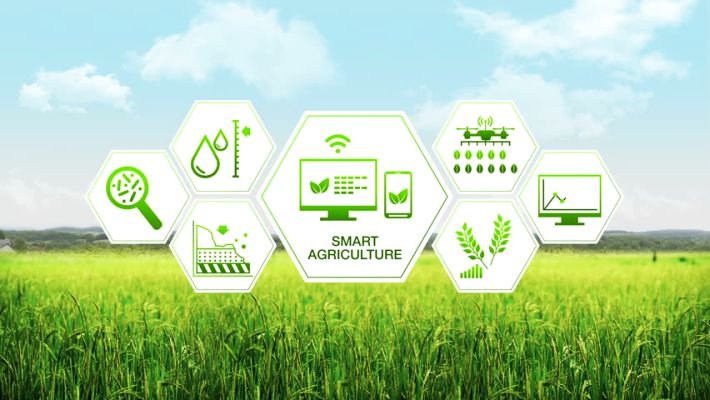Agriculture is a major part of the global economy and climate has obvious and direct effects on agricultural food production.
One of the major challenges is to study how to fill the information needs of policy makers, and how to report and communicate research results in an effective way for supporting the adaptation of food systems to climate change.
The application of new and innovative technology has significantly improved the production, transformation and delivery of climate information services.
These services range from near-term weather forecasts, real time monitoring and advisories, to participatory approaches that put actionable seasonal forecasts and longer-term climate projections into the hands of farmers, decision makers and other vital stakeholders.
Information Communication Technology (ICT) supports the implementation and management of adaptation strategies with a wide variety of tools among the others, forecasting tools, early warning system and resource management systems play a prominent role in this.
GIS are likely to be at the forefront of supporting monitoring and evaluation of adaptation strategies, due to their layer-based nature which allows including large geo-referenced information.
Adaptation and mitigation in agriculture will require local responses, but effective policy responses must also reflect global impacts and inter-linkages.
Continued investments in remote sensing and weather forecasting are as important as ever. Improvements in sensing and communication technology and in modelling techniques have brought sophisticated short-term forecasts to many parts of the world.
Artificial Intelligence and Machine Learning is being used to resolve complexity in crop growth, climate change and soil health, it is focused on enabling farmers in India and Africa regions to adapt to innovative technologies, remotely monitor farms, and produce quality food.
Through application suites like eFarmTM information such as crop monitoring reports, weather data, quality and disease management systems, and yield predictability is being provided.
Climate change will almost surely make life even harder for the world’s poorest and most vulnerable populations; we must avoid restricting their capacity to adapt by limiting their options. Technology options, in particular, must become more available.

A ‘Clean-Future Exclusive’ contributed by Kunal Tiwari, Chief Growth Officer, AGROMETRICS LLP






